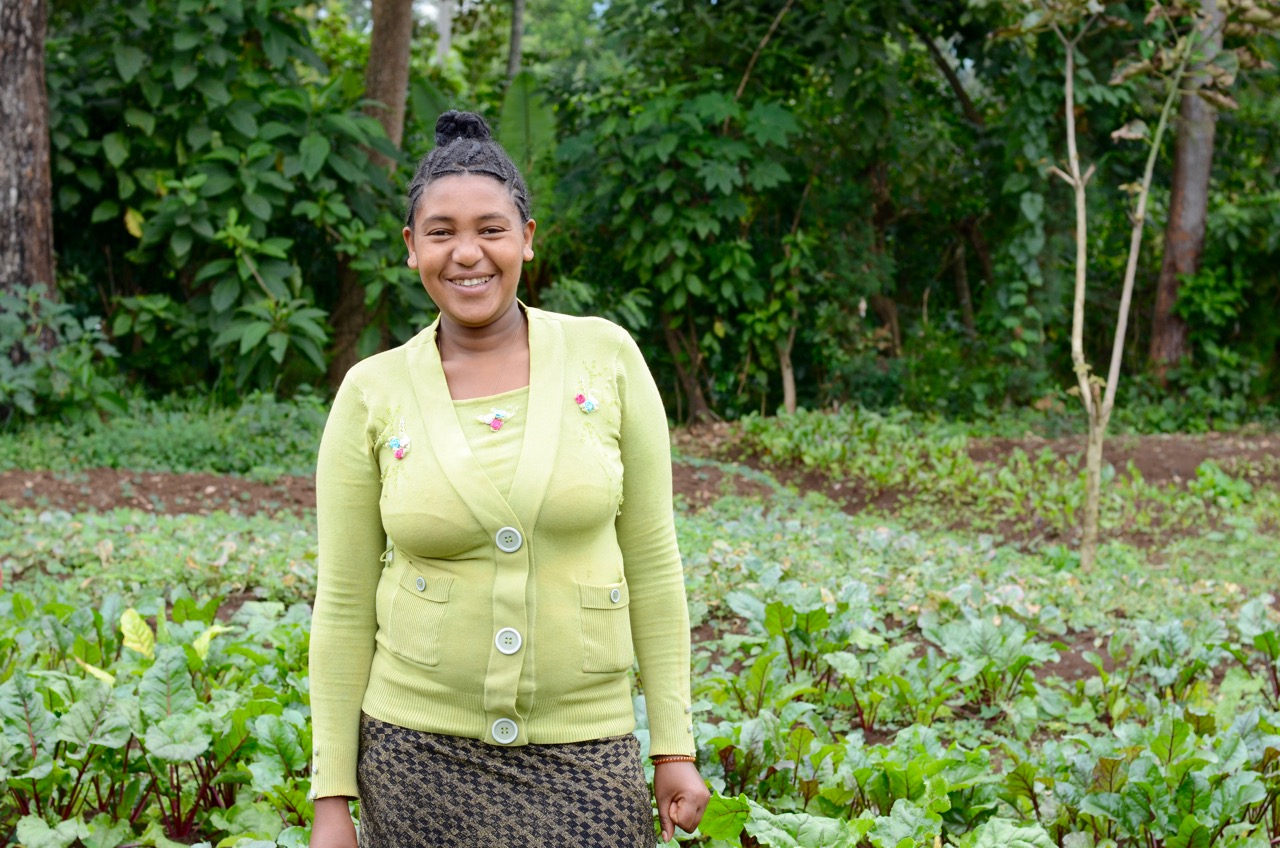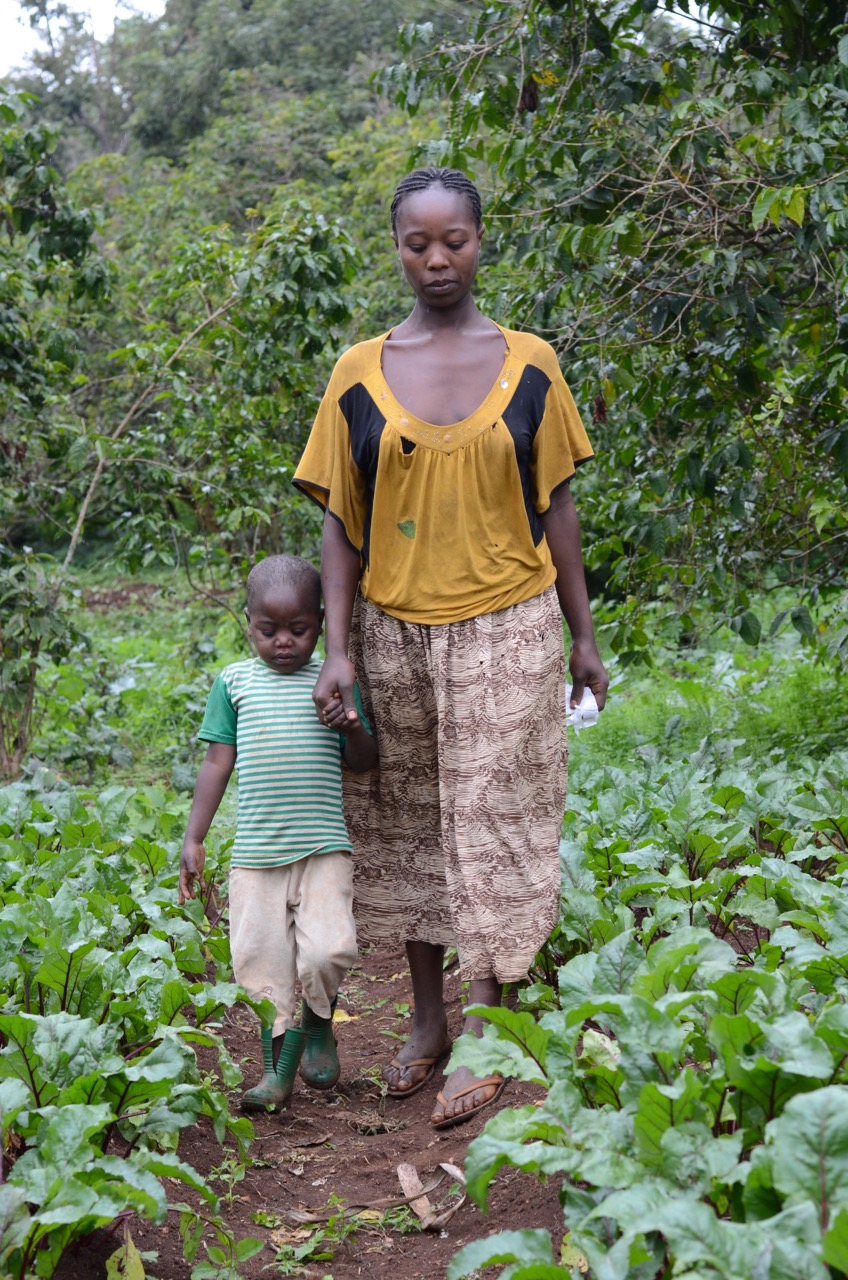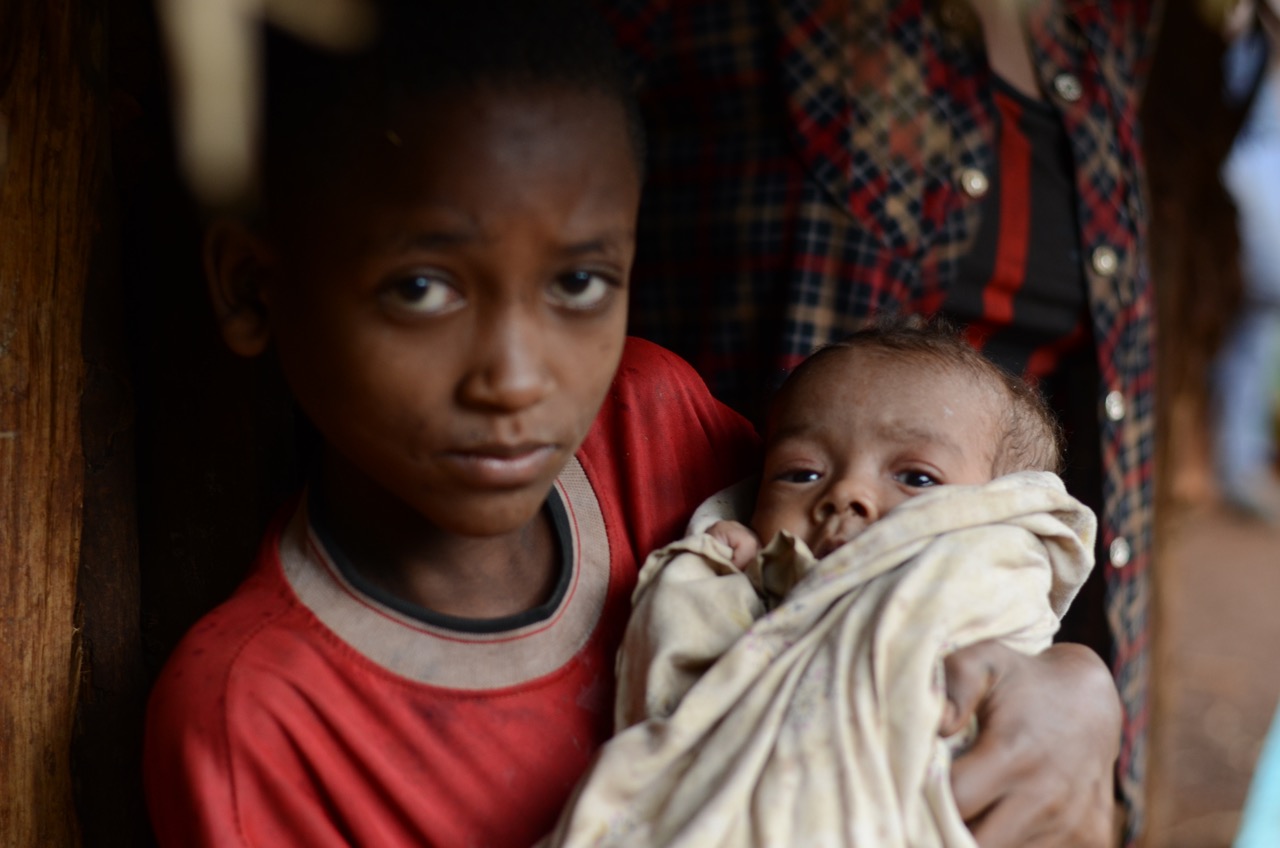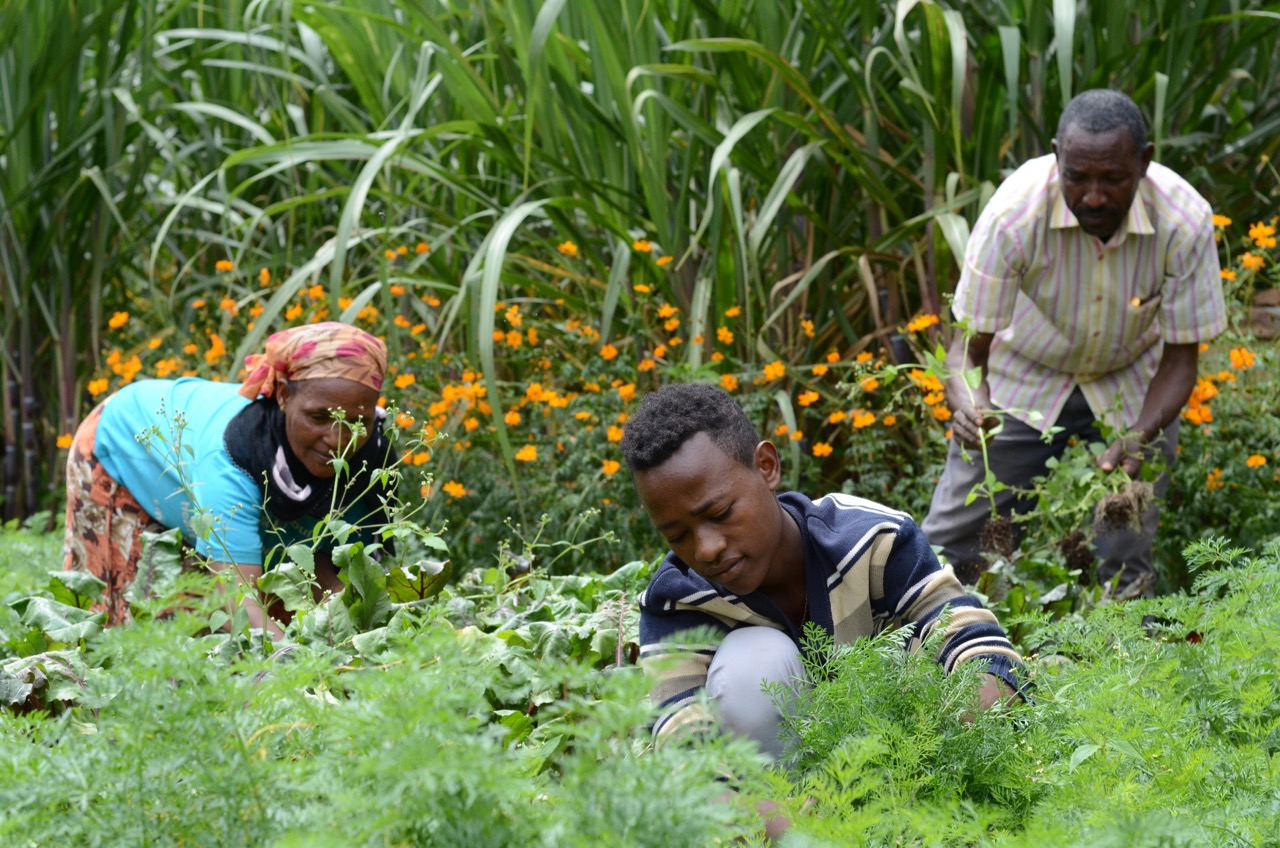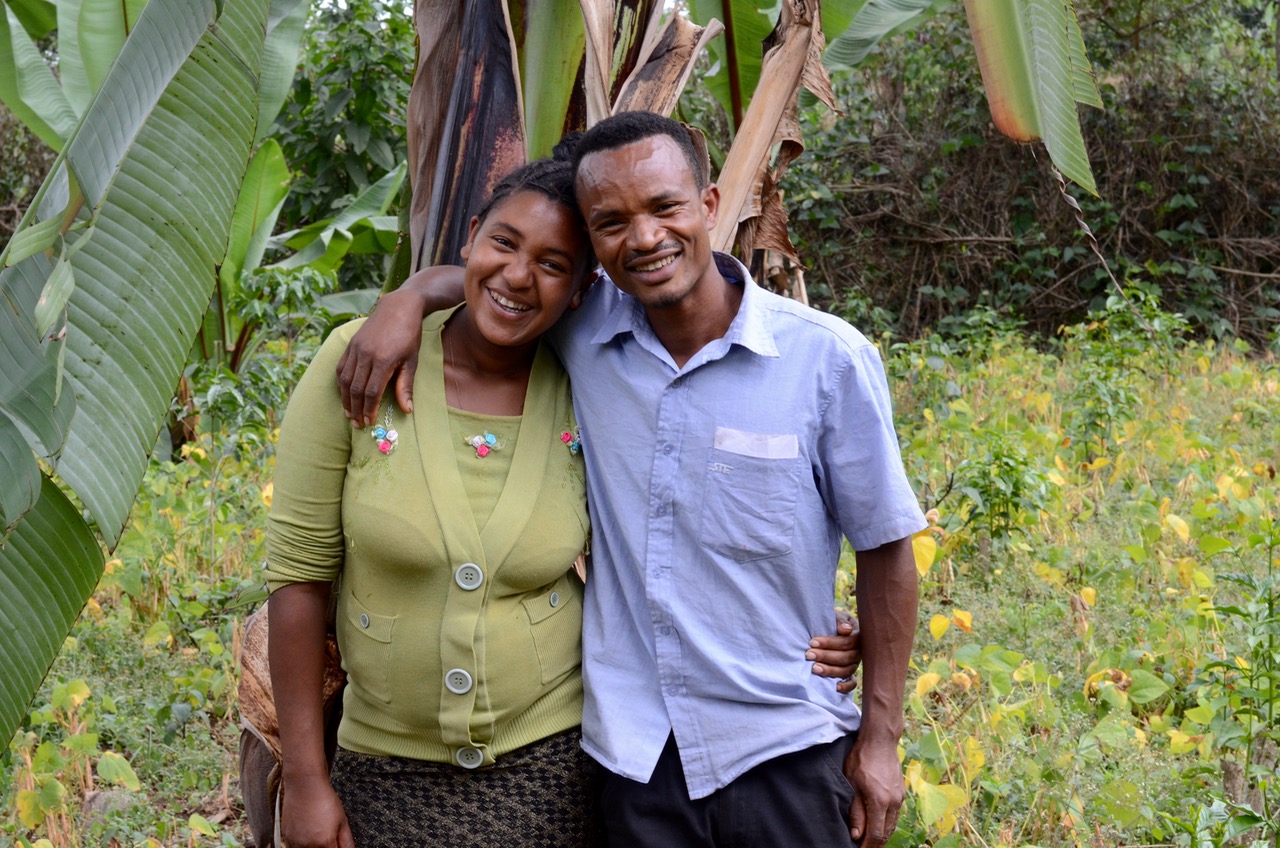Preventing a hunger crisis, empowering Ethiopian moms through a gardening club
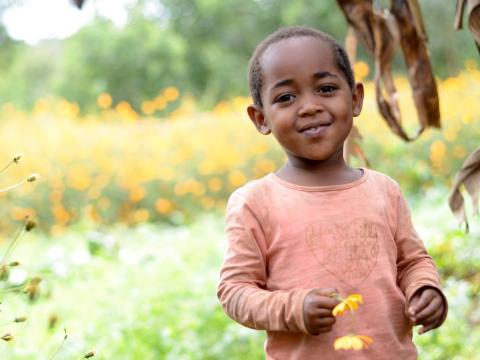
21-year-old Workalem is determined. She will not end up like her mother. And certainly, her four-year-old daughter will not have the same kind of life.
“I got married at 16. I wasn’t mature. I should have finished my education,” Workalem says.
Workalem’s life hasn’t been easy.
One of eight children, Workalem’s father died when she was 7 years old. Her mother pulled her children out of school, couldn’t afford the costs of notebooks and pencils.
Their family relied on growing coffee, plucking ripe coffee cherries from the bright green trees that blanket the landscape in this southern Ethiopian community.
The family was never able to harvest enough – the money they made from the sale of their coffee was used to purchase food but often ran out.
The problem is currently being repeated among many families during an ongoing hunger crisis in this region.
The family was never able to harvest enough – the money they made from the sale of their coffee was used to purchase food but often ran out.
“When I was living with my mother, the only thing she was feeding us was cabbage and injera,” Workalem says.
When the money ran out, the family skipped meals or ate just a few bites to survive.
“If the coffee produce declined due to bad weather, our income was also dramatically reduced,” Workalem explains.
When Workalem was married at 16 and had her daughter by the age of 17, she seemed to be stuck in a cycle that so many women in Ethiopia get caught in: education cut short, early marriage, early childbirth, continued poverty.
It’s a cruel inheritance that is made worse when natural disasters strike – like the current drought that is currently gripping this community.
“Women are more vulnerable because they are often not empowered in rural settings. There have been studies done that show Ethiopian women do 70% of the agricultural work but they don’t benefit financially.
"Men are the landowners, they control the finances, they make decisions and often don’t consult their spouse. Women are the ones looking after the children, and when there is drought or another kind of disaster strikes, women and children suffer the most.
"They don’t eat, they become malnourished and they don’t recover as quickly,” explains Mulugeta Zeleke, a World Vision livelihood specialist working in Kochere, in the south of Ethiopia.
Low rainfall drastically affected crop production – sending 8.5 million people across Ethiopia into a downward spiral.
Here in Kochere, the coffee trees that once brought profit no longer produced the same amount of beans, leaving families without money to buy food.
As such, a spike in malnutrition and hunger has been witnessed. More than 1,000 children under the age of five in this community are reported to be malnourished.
“The drought that entered our community is the worst thing. It is greatly threatening our community and I haven’t seen this type of drought in my lifetime,” Workelam says.
But a World Vision programme staved off the hunger crisis for 200 families with children under the age of five.
World Vision helped mothers form community gardening and savings clubs.
Each group has 20 members who have been trained in gardening, saving and borrowing. The groups are given seeds and communal land is transformed into vibrant gardens bursting with grow carrots, beetroot, spinach, onions, maize and peas.
Workalem is one of the gardening group members.
“We produce vegetables, so in the bad season we can feed our children and sell the surplus. Even though there is no rain, we can use the water from the well,” Workalem explains.
The results are startling – not one child from the group members has become malnourished during the past two years, despite high acute malnutrition rates in this community.
The mothers are sharing the profits from vegetable sales and investing.
“Because of this association, I am able to feed my child well. I borrowed some money from the association and I started a small business selling vegetables in the market. This way, I am generating income for myself,” Workalem says.
Demekeen is a 25-year-old mother of four who was also able to expand her grain selling business after she took out a loan from the group.
“I was also able to buy two sheep and now there are six,” Demekeen reports.
Perhaps the biggest shift has been the way the relationship with their husbands has changed.
The income is also bringing empowerment. Women are no longer ruled by their husband’s solitary decisions and control of the income.
“Before, I didn’t have any means of income,” Workalem says. “I am now independent. I am now depositing money into our savings group.”
Workalem has been able to return to her education. She’s now in Grade 10. She’s determined the course for herself and her daughter will not bear the brunt of drought and other disasters in the future.
“I can live better than my mother,” Workalem says. “For my daughter, I don’t want her to get married early. I am telling her to study well. She’s now in preschool. I am using family planning. I want a different future for us.”
